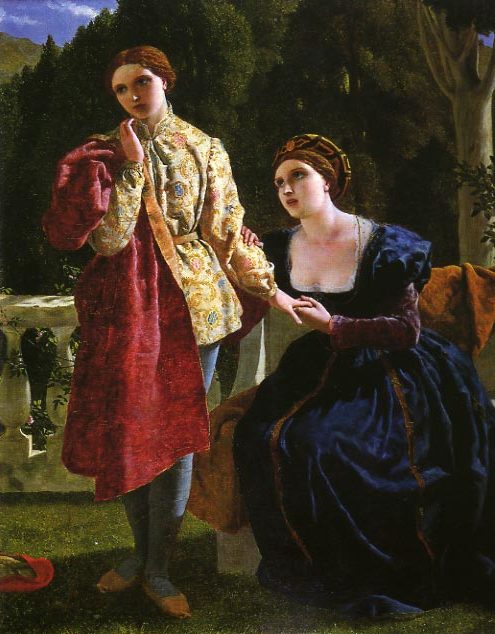Along with other classics like As You Like It and A Midsummer Night's Dream, Twelfth Night is considered by many to be one of Shakespeare's best comedies. It is a story of the pain of love, mistaken identities, and the pitfalls of ambition. Over 400 years after its creation, this play still continues to enchant audiences the world over and forms the basis of or own modern storytelling.
The Plot:
During a storm off the coast of the Kingdom of Illyria, the ship carrying Viola and her twin brother, Sebastian, sinks. After washing ashore and assuming her brother has drowned, Viola decides to disguise herself as a man, calling herself Cesario. She enters the services of Orsino, a nobleman who is in love with a noblewoman named Olivia. Olivia has rejected Orsino's proposal, but he decides to send Cesario (Viola) to woo her on his behalf. Though she herself has fallen in love with Orsino, Viola obeys him and sets out (as Cesario) to secure Olivia's love for her master. Olivia continues to spurn Orsino's advances, but she is intrigued by his messenger and is soon falling for the young "man". As if things weren't complicated enough, Sebastian also survived and has arrived Illyria. His uncanny resemblance to Viola causes even more confusion. How will these tangled relationships work themselves out?
My Review (Caution - Spoilers):
In Shakespeare's time and before, Twelfth Night (Jan. 6) was a day where everything was topsy turvy. Servants dressed up as their masters, men as women, and vice versa. It was day of revelry,
hiding one's true identity, and licensed disorder. We see this played out in the plot. The general order of things is turned completely upside down. Gender roles are switched around and general merriment is participated in by all. Malvolio, Olivia's chief servant, is an embittered man who puts a damper on all of the revelry and in turn is made the cause of even more of it.
I think what is most striking about Shakespeare's comedies is how much they continue to influence our entertainment today. There isn't a romantic comedy out there that doesn't in some way draw from Shakespeare's legacy. This one has many of the familiar tropes. Mistaken identities, gender disguises, forged letters, love triangles...all of these are now familiar to our modern audiences. Though they can seem rather cliche now, Shakespeare's wonderful use of language and immortal characters help keep things fresh. I especially enjoyed the witty Fool Feste and the witless fool Sir Andrew Aguecheek.
This was a fun read, though familiar in many ways. The plot is solid (for what it is), the language witty, and the characters unforgettable. In short, it is everything that we have come to expect and enjoy in a Shakespeare comedy.
The Performace:
Though reading Shakespeare is fun, it is also important to see it performed. Shakespeare gives few stage directions and this allows each individual give their own interpretation of the characters an their actions.
I watched the 1988 TV version of Kenneth Branagh's original stage direction. It starred Frances Barber, Christopher Ravenscroft, and Richard Briers. The setting was changed to a Victorian-like time period which allowed for some interesting scene interpretations. It was solidly acted and a treat to watch.
Do you have a favorite performance of this play? Share it below!

















1 comment:
I am unfamiliar with this particular play. Sounds like a good option for me this year when I'm trying to up my intake of Shakespeare. Thanks for reviewing it.
Post a Comment